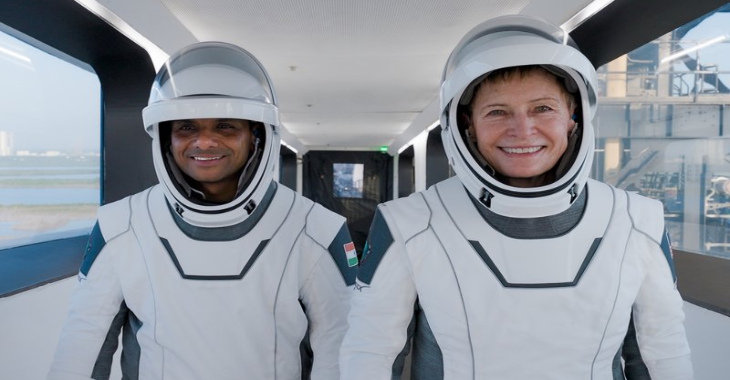NASA on Tuesday revealed a new date for Indian astronaut Shubhanshu Shukla’s historic journey to the International Space Station, which had been postponed several times.
Shukla is now scheduled to take off from NASA’s Kennedy Space Center in Florida’s Launch Complex 39A on June 25.
In its most recent update on the social networking site X, NASA stated that “NASA, Axiom Space, and SpaceX are targeting 2:31 a.m. EDT, Wednesday, June 25 for the launch of the fourth private astronaut mission to the International Space Station, Axiom Mission 4.”
“The crew will travel to the orbiting laboratory on a new SpaceX Dragon spacecraft after launching on the company’s Falcon 9 rocket,” the tweet stated.
There have been several reschedulings of the mission since its initial May 29 departure date, including June 8, June 10, June 11, and most recently, June 19.
It was originally scheduled to launch on June 22 but was postponed once more due to ongoing evaluations of recent repairs made to the ISS’s aft part of the Russian Zvezda service module.
“Roughly seven in the morning is the desired docking time. June 26th, Thursday. NASA will soon release additional information about its coverage, the US space agency announced.
For India, the mission has historical significance. After Rakesh Sharma’s 1984 journey, Group Captain Shubhanshu Shukla is expected to become the second Indian in space and the first Indian astronaut to visit the International Space Station.
In addition to US Commander Peggy Whitson, Shukla will pilot the expedition.
The other crew members are mission specialists Tibor Kapu of Hungary and Slawosz Uznanski-Wisniewski of Poland. Shukla will carry out groundbreaking research on food and space nutrition once she is on board the ISS.
With assistance from NASA, ISRO and the Department of Biotechnology (DBT) collaborated to develop these tests, which are intended to advance knowledge of sustainable life-support systems, a critical component of long-duration space flight in the future.
Additionally, the study will examine how edible microalgae—a nutrient-rich, very promising food source for upcoming space missions—are affected by microgravity and space radiation.
In addition to analyzing transcriptome, proteomic, and metabolomic alterations in several algae species in space as opposed to their behavior on Earth, the experiment will assess important growth indices.
Read More
Netanyahu praises Trump for his attacks on Iran’s nuclear facilities, putting strength before peace
According to PM Modi, yoga leads the globe toward peace


